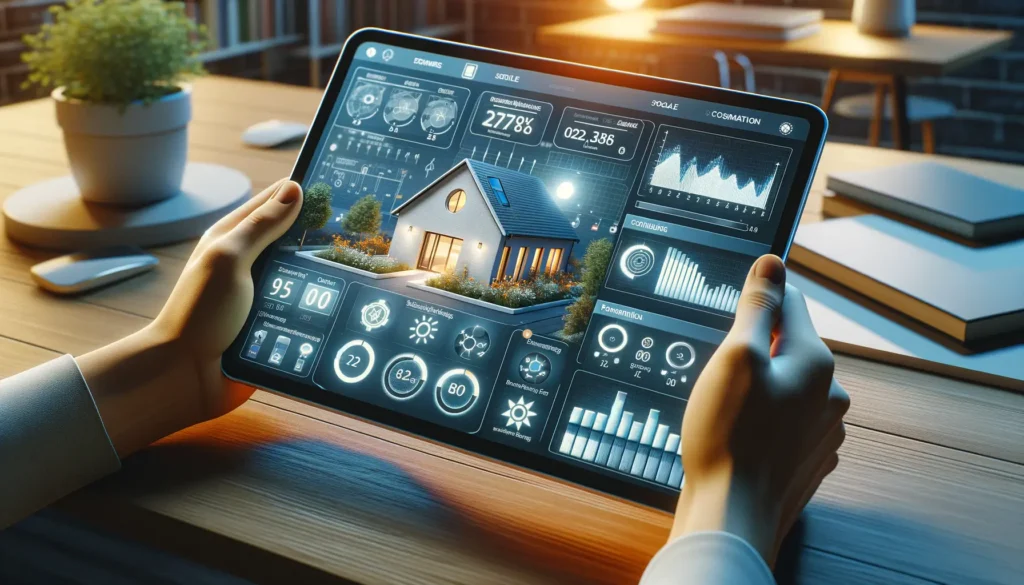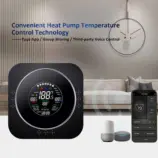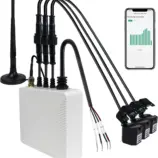Home Energy Efficiency Introduction
In the quest for sustainability, the management of home energy consumption has emerged as a pivotal arena for innovation and environmental stewardship. As global energy demands burgeon, alongside escalating concerns over climate change, households stand at the frontline of the transition towards more sustainable energy practices. This discourse delves into the intricacies of optimizing home energy usage through advanced scheduling algorithms and parameter settings, particularly focusing on the integration of solar energy systems, energy storage, and smart grid technologies. By harnessing the latest in forecasting algorithms and optimization strategies, this article aims to illuminate pathways towards achieving energy efficiency and conservation at the household level.
The Current Landscape of Home Energy Consumption
Home energy consumption represents a significant portion of global energy use, characterized by heating, cooling, lighting, and the operation of various appliances. Despite the potential for substantial energy savings, many households grapple with inefficiencies that lead to excessive energy use and elevated costs. The integration of solar energy and storage systems has begun to alter this landscape, offering promising avenues for reducing reliance on traditional power grids and minimizing carbon footprints. However, realizing the full potential of these technologies necessitates sophisticated management strategies, underscored by dynamic scheduling algorithms and precise parameter adjustments.
The Crucial Role of Scheduling Algorithms and Parameter Settings for Home Energy Efficiency

At the heart of efficient home energy management lies the application of scheduling algorithms, designed to orchestrate the interplay between solar power generation, battery storage, and energy consumption in a manner that maximizes efficiency and minimizes costs. These algorithms take into account various factors, including weather patterns, energy demand forecasts, and electricity pricing dynamics, to determine optimal charging and discharging schedules for energy storage systems, as well as the best times to draw on solar energy or grid electricity.
Parameter settings play a pivotal role in fine-tuning the performance of energy management systems. By adjusting parameters such as charge thresholds, discharge rates, and demand response triggers, homeowners can optimize the operation of their solar and storage systems to align with their energy usage patterns and financial objectives. This level of customization is essential for maximizing the benefits of renewable energy installations and achieving significant energy savings.
Leveraging Technological Advances for Efficient Energy Use
The advent of predictive algorithms has marked a significant milestone in home energy management. Machine learning and deep learning models are increasingly employed to forecast household energy demand and solar energy production with remarkable accuracy. These forecasts enable more informed decision-making regarding energy storage and consumption, ensuring that energy is used as efficiently as possible.
Furthermore, optimization algorithms such as genetic algorithms and particle swarm optimization have been applied to devise optimal energy dispatch strategies. These methods offer innovative solutions for balancing energy supply and demand, adjusting in real-time to changes in energy availability and consumption patterns. By integrating these algorithms into home energy management systems, households can achieve a new level of energy efficiency, reducing their environmental impact while also curbing energy expenses.
Advanced Research Case Studies and Literature
Recent studies offer compelling insights into the practical applications of forecasting algorithms and optimization techniques in home energy management. For instance, a groundbreaking study published in the "Journal of Renewable and Sustainable Energy" demonstrated how deep learning models could accurately predict household energy consumption and solar generation, enabling dynamic energy storage management that resulted in a 30% reduction in grid energy reliance.
Another notable research project, featured in the "Energy Efficiency Journal," utilized genetic algorithms to optimize the operation of home solar and storage systems. The study achieved a 25% improvement in energy efficiency, showcasing the potential of advanced algorithms to significantly enhance the performance of renewable energy systems.
These case studies underline the efficacy of predictive and optimization algorithms in transforming home energy management, paving the way for more sustainable and cost-effective energy usage practices.
Addressing Challenges and Proposing Solutions
Despite the promising advancements in home energy management technology, several challenges impede widespread adoption. High initial costs of solar and storage systems, technical complexity, and consumer skepticism represent significant barriers. Moreover, the integration of these technologies into existing energy infrastructures requires navigating regulatory and policy hurdles.
To overcome these obstacles, innovative financing models such as solar leases and power purchase agreements (PPAs) have emerged, making renewable energy systems more accessible to homeowners. Educational initiatives aimed at demystifying the technology and demonstrating its benefits are crucial for increasing consumer acceptance. Policy reforms and incentives can further encourage adoption, while technological advancements continue to reduce costs and enhance system compatibility and user-friendliness.
Future Directions in Home Energy Management
The horizon of home energy management brims with potential, driven by ongoing technological innovation. The Internet of Things (IoT) is set to play a transformative role, enabling seamless integration of energy systems, appliances, and sensors to create a fully interconnected and intelligent home energy network. This IoT-enabled ecosystem will facilitate real-time monitoring and management, further optimizing energy use and enhancing comfort.
Artificial intelligence (AI) and blockchain technology also hold promise for advancing home energy management. AI can provide even more accurate forecasts and adaptive learning capabilities for personalized energy optimization, while blockchain offers a secure and transparent platform for energy transactions, promoting the adoption of peer-to-peer energy trading among households.
As renewable energy technologies continue to evolve, we can anticipate a shift towards more autonomous and self-sufficient home energy systems. These systems will not only provide clean and efficient energy but also support the broader grid through demand response and energy storage, contributing to a more resilient and sustainable energy landscape.
Conclusion
The journey towards optimizing home energy management is an ongoing process, marked by rapid technological advancements and a growing recognition of the need for sustainable energy solutions. By leveraging advanced scheduling algorithms, predictive analytics, and optimization techniques, households can significantly enhance their energy efficiency, reduce costs, and contribute to environmental conservation.
As we look to the future, the continued evolution of smart technologies, coupled with supportive policies and consumer education, will be key to realizing the full potential of home energy management. The integration of solar energy, storage systems, and smart grids, guided by sophisticated management strategies, heralds a new era of energy independence and sustainability for households around the globe.
In sum, the path forward is clear: embracing innovation, overcoming challenges through collaboration and policy support, and staying attuned to the evolving landscape of energy technology will enable us to harness the immense potential of home energy management for a greener, more efficient future.



